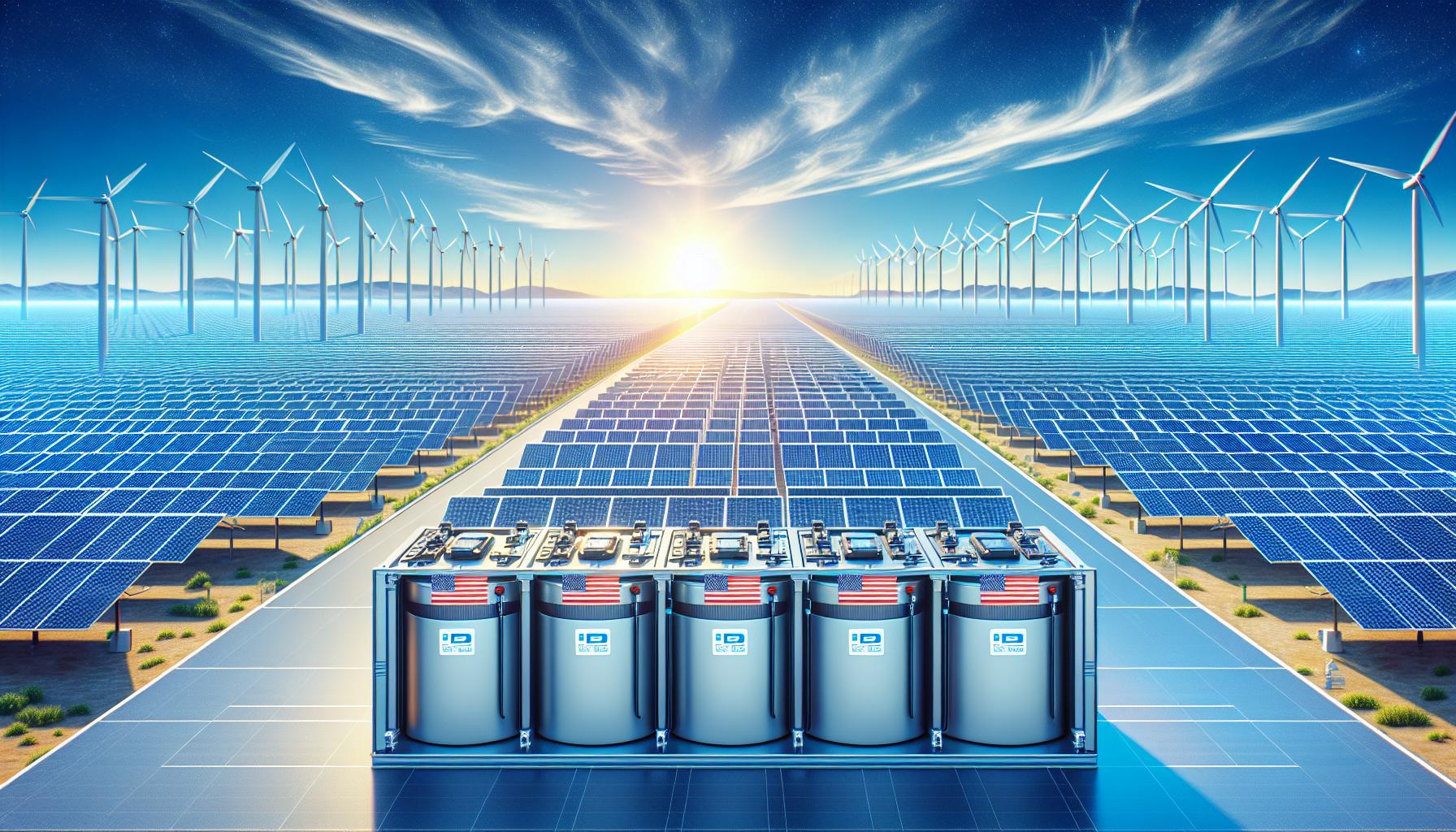In a world where technology evolves faster than a cat meme goes viral, staying updated on the latest in ESS tech news is crucial. Whether it’s groundbreaking advancements in renewable energy or the latest gadgets that promise to make life easier (or at least more entertaining), there’s always something buzzing in the tech hive.
Imagine sipping your morning coffee while discovering how AI is transforming industries or how a new app could revolutionize your daily routine. This isn’t just tech talk; it’s the pulse of innovation that shapes our future. So buckle up and get ready to dive into the exciting realm of ESS tech news, where every headline could spark your next big idea—or at least make you the smartest person at the water cooler.
Ess Tech News
Staying updated on ESS technology reveals significant advancements in energy storage and its applications. Innovations reshape industries, driving efficiency and sustainability.
Emerging Technologies in Energy Storage
Recent developments in energy storage focus on advanced battery technologies. Solid-state batteries improve safety and energy density. Lithium-sulfur batteries promise lower costs and higher performance. Flow batteries enable scalable solutions for grid storage. Research into hydrogen storage systems highlights potential for clean energy applications. Companies invest heavily in these technologies, aiming for breakthroughs that drive down costs and enhance performance.
Key Market Players and Developments
Leading market players include Tesla, LG Chem, and Panasonic. Tesla’s Megapack supports large-scale energy storage projects, integrating seamlessly with renewable energy sources. LG Chem focuses on lithium-ion technology, supplying batteries for electric vehicles. Panasonic partners with Tesla to boost production capabilities. Emerging startups challenge established companies, introducing innovative solutions. These developments exhibit a competitive landscape, fostering rapid improvements in energy storage systems and driving market expansion.
Impact of ESS on Renewable Energy

Energy Storage Systems (ESS) significantly impact renewable energy integration. They enhance efficiency, reliability, and sustainability while supporting cleaner energy solutions.
Enhancing Grid Stability
ESS increases grid stability by providing backup power during demand spikes. Batteries smooth out fluctuations from intermittent sources like solar and wind. With effective energy storage, grid operators can better manage energy supply, which leads to fewer outages. Additionally, specialized software collects data to optimize resource distribution. This dynamic adjustment bolsters resilience in power systems during unexpected events.
Supporting Sustainable Practices
ESS plays a critical role in supporting sustainable practices across industries. These systems reduce reliance on fossil fuels by storing excess renewable energy for later use. Businesses adopting ESS often reduce carbon emissions, aligning with green initiatives. Financially, energy storage can cut costs by optimizing energy use and enabling participation in demand response programs. Companies also benefit from incentives for implementing cleaner technologies, fostering a shift toward a more sustainable energy landscape.
Innovations in Energy Storage Solutions

Advancements in energy storage solutions are reshaping the landscape of energy management. Technologies continue to evolve, paving the way for enhanced efficiency and sustainability.
Battery Technologies Overview
Solid-state batteries lead the charge in energy storage innovation. These batteries use solid electrolytes, offering higher energy densities and improved safety compared to traditional lithium-ion batteries. Lithium-sulfur batteries also show promise, providing a lightweight alternative with a higher theoretical capacity. Flow batteries stand out by allowing for easy scalability, making them ideal for large-scale applications. Hydrogen storage systems present a unique solution, converting excess energy into hydrogen for later use. Key players like Tesla, LG Chem, and Panasonic are heavily investing in these technologies, pushing boundaries in energy storage.
Software and Management Systems
Advanced software solutions revolutionize energy management. These systems optimize energy usage in real time, enhancing the efficiency of energy storage systems. They facilitate predictive analytics, allowing operators to foresee energy demands and adjust resources accordingly. Energy management platforms enable integration with renewable sources, ensuring seamless transitions between energy supplies. Companies developing these tools prioritize user interfaces for improved accessibility, fostering broader adoption. Real-time monitoring and reporting features empower users to make informed decisions, driving overall system performance.
Challenges Facing ESS Industry

As the energy storage systems industry evolves, several distinct challenges emerge that stakeholders must address for sustained growth.
Regulatory Hurdles
Compliance with varied regulations presents a significant challenge. Different regions impose unique standards, often leading to confusion for manufacturers and suppliers. Licensing procedures can slow down project timelines, affecting overall market entry. Furthermore, evolving policies impact investment and funding for new technologies. Achieving regulatory harmony remains essential for fostering innovation and market expansion.
Technological Limitations
Technological advancements continue to improve energy storage capabilities, yet limitations persist. Short battery life affects performance in large-scale applications, limiting consumer confidence. Challenges in energy density and efficiency hinder the potential of existing technologies. Moreover, production costs for newer battery types, such as solid-state and lithium-sulfur batteries, can remain prohibitively high. Overcoming these technological barriers is vital for driving broader adoption and enhancing the reliability of energy storage solutions.
Conclusion
Staying updated on ESS tech news is crucial for anyone interested in the future of energy storage and sustainability. The rapid advancements in this field promise to reshape industries and improve everyday life. As new technologies emerge and established players innovate, the potential for enhanced efficiency and reliability grows.
Engaging with the latest developments not only fosters awareness but also encourages innovative thinking. By understanding the challenges and opportunities within the ESS landscape, individuals and businesses can better position themselves to adapt to the evolving energy market. Embracing these changes will be key to driving a more sustainable and efficient energy future.



